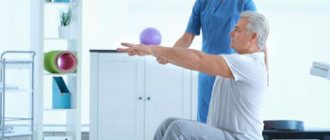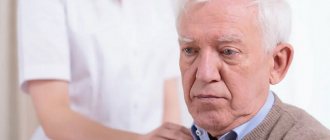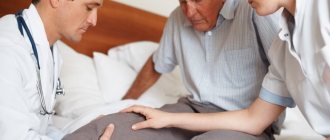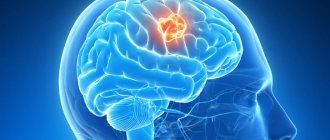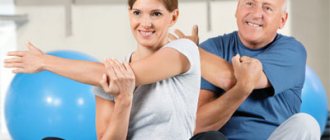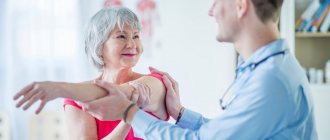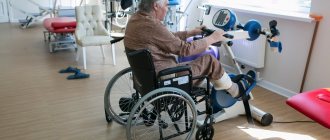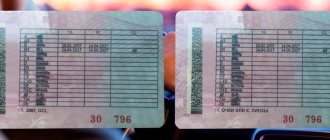Fedorova Alexandra Vladimirovna
Psychologist
Stroke is the death of a part of the brain due to circulatory problems. Depending on the location of the problem, disturbances may affect motor functions and coordination, kinesthetic sensitivity, sensory organs, logical functions, attention, and memory. Often, violations occur not in one area, but affect several functions at once. Memory impairment is observed in many locations of stroke. This is due to the fact that memory does not have a precise localization, but is distributed over the entire surface of the brain. Types of memory: - RAM allows you to retain information in your head to solve complex problems, this can be numbers, names, order of actions. Memory lasts from a few seconds to days or a week, it all depends on the task at hand, after which the information is forgotten; - short-term memory allows you to retain events that just happened in your head over a period of several seconds or minutes; - long-term memory is a “hard drive”, an archive of all data.
Types of disorders after a stroke
They depend on the location of the outbreak and its scale. Behavioral disturbances and loss of skills may occur when the limbic system of the brain is damaged. When the frontal lobes are damaged, verbal-logical memory suffers; when the hippocampus is damaged, long-term memory function is impaired. All these and other types of violations can be observed both individually and in combination. The most common events after a stroke are:
- difficulties in reproducing information when it is difficult for a person to remember the procedure for brewing coffee;
- when a person remembers his friends, relatives, but cannot remember their names, knows the purpose of an object, but cannot name it verbally;
- the reverse process may occur when a person does not recognize relatives and objects visually;
- amnesia – complete loss of memories before the stroke, while acquired skills and speech are preserved;
- disorders in short-term memory, when a person finds it difficult or impossible to remember new information.
What memory impairments can there be?
After a brain stroke, the patient may experience a memory disorder, in which it is difficult to remember or “eludes” information, and obstacles arise when trying to talk about what they heard (saw). A person who has suffered a brain stroke most often suffers from one type of memory disorder, but in some cases there may be an overlap of several types. For example, with hypomnesia there is only a noticeable weakening of memory, and with amnesia a person does not remember events either before or after the stroke.
When short-term memory is impaired after a stroke, a person remembers everything that happened before the illness. But most often, a stroke destroys long-term memory and a person does not remember what happened before the illness. Paramnesia involves distorted or false memories. With hypermnesia, on the contrary, all memory processes are enhanced; this is a very rare phenomenon.
Recovery methods
Depending on the location and volume of the stroke, the duration and prognosis of treatment changes. Sometimes it happens that it becomes impossible to completely eliminate forgetfulness after a stroke. The person becomes disabled and cannot remember or recall information. But we must remember that the abilities and interchangeability of brain areas are great. With diligent and long-term treatment, improvements can be achieved. To eliminate forgetfulness after a stroke you need to:
- regularly repeat old and new information to the patient, but do not give it in large quantities;
- train in abstract thinking and memorizing visual images;
- talk in detail about a person’s life and habits, take him to familiar places;
- learn by heart names, cell phone numbers, poems, songs;
- play games where you need to remember information: chess, cities;
- Solving crossword puzzles helps a lot.
To eliminate forgetfulness after a stroke, it is important to be patient and diligent in your treatment every day. You can’t be angry with the patient, you need, on the contrary, to praise him and tell him that everything will work out. After a stroke, patients are characterized by a state of depression and apathy, so it is important to support them emotionally.
Clinical Brain Institute Rating: 4/5 — 5 votes
Share article on social networks
How to train your memory after a stroke
How to train your memory after a stroke
With age, as well as when problems arise associated with neurological diseases, in particular stroke, periods of loss of short-term memory occur. Working memory, what we call short-term memory, is one of the key cognitive functions that allows you to store information online. Working memory often suffers after a stroke and traumatic brain injury, resulting in problems with attention, absent-mindedness, and forgetfulness. After a stroke, one of the main reasons why a person cannot and is not able to return to work is a cognitive problem.
There are many physical rehabilitation techniques that help with motor and speech problems, but there is currently no satisfactory treatment for cognitive problems.
Simple techniques can help you process information, store it, and use it when needed. Here are some tips for memory training:
Associations and visual images
You will be able to learn or remember something more easily if you associate the new thing with something you already know or remember well.
- To remember a specific date, it is worth linking it with other known dates or time periods (Christmas, birthday, etc.)
- To help you remember new names, associate the new name with a famous person you know and remember. Associate a person's name with his physical characteristics (eyes, ears, weight, size), creating a visual image.
- Link things you might forget to things you always remember, for example, if you drink tea every morning, put your pills next to your tea bags so you don't forget about them.
Repetition
Review and repeat the material you need to remember as often as possible. Feel free to repeat new information several times. If you have to remember something quite large (a story, a map of directions, etc.), break the information down into small pieces and carefully, slowly learn them, and you can use associations as a way to memorize.
Memory replacement or compensation
As Confucius wisely said, “Even the dullest ink is stronger than the best memory.” Get yourself a notebook, an album of reminders in which you can write down everything you need, names and contacts, phone numbers, medications and any additional information. For ease of use of the book, information can be divided by color, very important - red, everyday affairs - blue, etc. Make sure you have plenty of storage space for valuable information.
Personal training
Constant training improves memory, so you need to constantly train yourself. Look at a picture or photo for a few minutes, and then, without looking at it, try to write down all the things you remember, or try to draw it. Start easy and gradually increase difficulty.
Improving memory using unconventional methods
To solve the problem of “how to restore memory after a stroke” and “ how to improve memory,” oriental medicine offers a whole range of combined methods, among which the fundamental ones are:
- Acupuncture in the post-stroke state helps improve blood supply to the brain, improves immunity, affects the energy meridians of the nervous system, stimulates the passage of nerve impulses, balances the patient’s psycho-emotional state and, ultimately, activates the body to defeat the disease. This method is effective in rehabilitating almost all lost capabilities of the body.
- Acupressure is one of the legendary treatment methods of Tibetan medicine. When at one time there was a boom in oriental hand-to-hand martial arts, most Russians learned for the first time about the existence of special points on the human body. Today, everyone more or less has an understanding of biologically active points, meridians and Qi energy, and some advanced people know how to restore memory through the use of points.
Here are some of them:
- a point in the center of the head (in the dimple).
- the point between the upper lip and nose.
- point in the center between the eyebrows.
- a point in the hollow of the temples in line with the outer edge of the eyebrow.
- point tzu-san-li four fingers down from the knee.
- a point in the cavity between the thumb and forefinger.
It is recommended to massage the points at home twice a day after treatment by Tibetan medicine doctors. You need to spend a total of 4-5 minutes on all exercises.
3. Tibetan “green” therapy plays one of the most important roles in rehabilitation after stroke. Tibetan herbal teas improve memory, normalize sleep, increase the ability to concentrate, activate the mind, eliminate blockages in the movement of blood, lymph and energy flows moving along the meridians, increase a person’s vitality, and elevate his spirit.
Why do memory impairments occur after a stroke?
The consequence of a blockage or rupture of a vessel is a stroke, and a person can suffer such a condition on his feet without noticing any changes. In some cases, the circulatory system suffers, which cannot deliver oxygen-enriched blood to a certain area of the brain and the cells of the cortex gradually die.
Cellular necrosis and lack of proper medical care remain the main causes of deterioration in health after a stroke. Against the background of such complications, partial or complete paralysis, immobilization of facial muscles and drooping of the corner of the mouth or eye, speech dysfunction and memory loss develop.
If the problem is noticed in a timely manner and qualified recovery after a stroke , it is possible to avoid the consequences. This situation is due to the fact that when a certain part of the brain is inactive, living cells can perform additional functions after a rehabilitation program.
It is impossible to predict the consequences of a stroke, but immediately after diagnosing such a condition, doctors can provide the necessary assistance. And by organizing proper care at home or placing an elderly person in a special rehabilitation boarding house, you can restore all lost body functions.
What medications help restore memory after a stroke?
Memory tablets after a stroke optimally improve metabolism in the structural units of the nervous system. Among them are Aminalon or Picamilon, Piracetam or Cerebrolysin, Xanthilate nicotinate or Pantogam, Mexidol or Actovegin.
Some of them belong to a subgroup of neurometabolic stimulants and have a direct effect on the brain and metabolic processes in tissues by increasing the speed of impulses along nerve fibers. The listed medications are prescribed for memory impairment in the post-stroke state.
Memory medications, for example, periwinkle extract, Cavinton or Telektol, Vinpocetine or Bravinton, improve cerebral circulation and the condition of the intracranial vessels of the brain and have a vasodilating effect. At the same time, you must take into account that the medicine “for memory after a stroke” is selected by the doctor, and not by you, at your own discretion or on the recommendation of people who have encountered this problem.
How can you speed up rehabilitation after a stroke?
First of all, you should understand that rehabilitation after a stroke at home is carried out in Krasnodar and the Krasnodar region. But a much more effective and efficient option would be to place a person in the sanatorium conditions of a specialized boarding house. A worthy option in Krasnodar for accommodating an elderly person after an apoplexy with the provision of reliable care is the private boarding house for the elderly “Harmony”.
Qualified staff of a private boarding house have the appropriate education and are ready to provide reliable and safe care for an elderly person, which has a positive effect on the pensioner’s well-being and contributes to his recovery. And also an important element of staying in a hospital for recovery is healthy and dietary nutrition, prepared by qualified specialists to get rid of the negative consequences of apoplexy.
Rehabilitation after a stroke in Krasnodar at home can be carried out in mandatory contact with qualified specialists. But in this case it will take longer. If you need to get rid of negative consequences, recover in the shortest possible time, efficiently and effectively, then the best solution would be to choose our private boarding house “Harmony”.
How long does it take to recover memory after a stroke?
Rehabilitation procedures after a stroke carried out by specialists at our private boarding houses include an integrated approach. This means that in addition to memory restoration, psychologists work with patients to help stabilize their psycho-emotional state and return to normal life.
The process of memory restoration and its duration depend solely on the diagnosis and the degree of destruction of the neural network. It is very important that the patient immediately after a stroke begins to undergo a rehabilitation course and follows all the doctor’s instructions so that the changes become reversible.
Having lost memory and part of cognitive abilities, a person feels disoriented and often becomes depressed. For older people, it is important to organize optimal conditions for therapy and create comfortable psychological conditions under which rehabilitation will be as effective as possible.
Is memory restored after a stroke?
Destroyed neural connections can be restored and this will provide the opportunity to partially or completely restore a person’s memory.
But for this it is necessary to create optimal conditions and develop a set of techniques, regularly conduct classes and monitor the current state of health of an elderly person:
- systematic memory training and activation of thought processes;
- drug therapy using memory improving drugs;
- using intellectual games and exercises to strengthen memory.
Classes and exercises should not overload the brain; in a person’s life it is important to find time for rest and entertainment. A specialized private boarding house for the elderly in the Moscow region offers unique and individually adaptable rehabilitation program complexes for people who have suffered a stroke.
